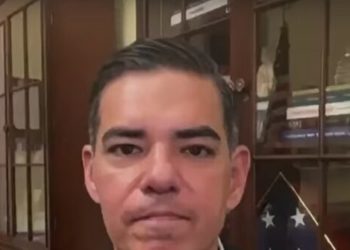President Trump threatened on Thursday to revoke broadcasting licenses over late-night hosts who speak negatively about him, escalating an assault against the media. “They’re giving me all this bad press, and they’re getting a license,” Mr. Trump told reporters aboard Air Force One, after ABC suspended the late-night Jimmy Kimmel Live show. “I would think maybe their license should be taken away.”
Mr. Trump’s threats have put a spotlight on the Federal Communications Commission, an agency best known for regulating phone prices and reviewing telecom mergers. Here’s what to know about how broadcast licensing works.
What power does the F.C.C. have over broadcasters?
As the nation’s steward of the public airwaves, the agency gives out licenses to TV stations to broadcast over radio frequencies. Companies like Sinclair, Nexstar, and Comcast are the nation’s biggest station owners. Some companies like Disney own individual stations as well as the networks that supply much of their programming.
Mr. Trump, more than any president, has threatened to use the powerful lever of government broadcast licenses as a cudgel against media companies over their coverage of him.
The F.C.C. also approves major telecom and media deals, vetting mergers for anticompetitive concerns. The agency reviews deals because of the exchange of licenses for public airwaves and other telecommunications services under its watch.
The F.C.C. does not regulate programming from networks like ABC, CBS, and NBC.
Can the F.C.C. pull broadcast licenses?
The F.C.C. can revoke a license under a rarely used public interest standard, which can be very broadly defined.
Thank you for your patience while we verify access. If you are in Reader mode please exit and log into your Times account, or subscribe for all of The Times.
Thank you for your patience while we verify access.
Already a subscriber? Log in.
Want all of The Times? Subscribe.
The post Trump Has Threatened Broadcast Licenses. Here’s How They Work. appeared first on New York Times.




